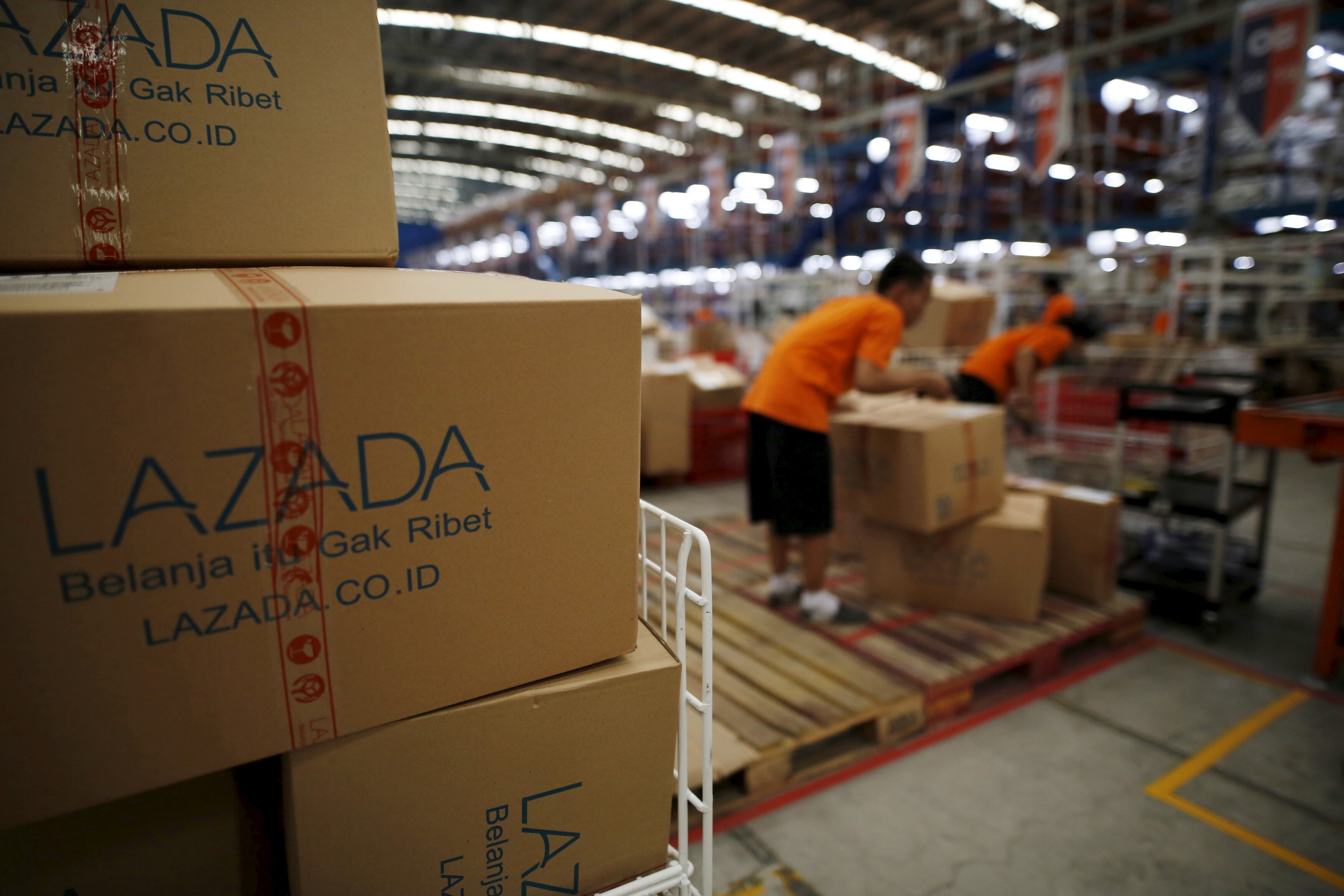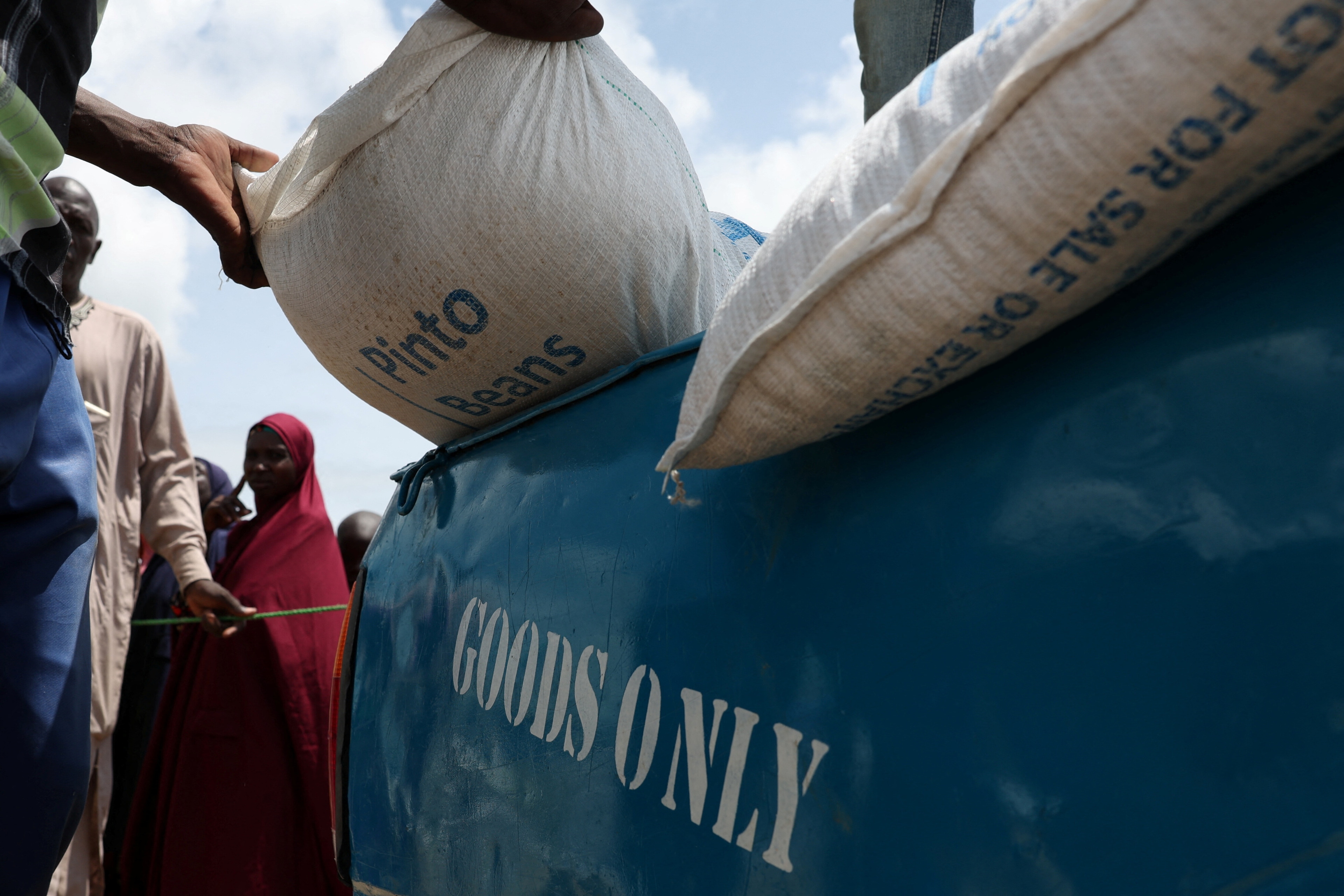Five ways to increase trust in e-commerce

E-commerce is already worth $25.3 trillion - but are poor levels of consumer trust be holding it back? Image: REUTERS
Kimberley Botwright
Deputy Head of CRTG, Head of Responsible Trade & Governance, World Economic ForumTrust between consumers and suppliers is often a bigger issue online than it is offline.
Online, there is a limit to both physical interaction and the opportunity to test the professionalism of a retailer or suppliers. According to one survey of 24,000 internet users in 24 countries, 22% said they never shop online - and of those, 49% gave lack of trust as the reason.
Not unsurprisingly, developing online trust gets more complicated when a consumer is in one country and a supplier is in another. Consumers might not be sure that they benefit from the same protections. Will their card details be handled safely, and will they be able to return a faulty item? In some cases consumers may not realise they are shopping abroad.
From a supplier’s perspective, low levels of cross-border trust can impact export opportunities, particularly for small businesses without global brand power. Unclear rules on consumer trust can equally cause uncertainty around compliance, and it can be cumbersome to adapt to different approaches between countries.
Based on insights from a new white paper, The Global Governance of Online Consumer Protection and E-commerce, here are five ways policymakers can increase trust in e-commerce.
1. Create relevant online consumer protection rules
While most countries have a legal framework for consumer protection, just 52% have updated theirs to cover online activities, according to the United Nations Conference on Trade and Development (UNCTAD) CyberLaw Tracker. For other countries, laws are at the draft stage; there is nothing on the books, or no information is available.
2. Focus on personal data protection
Many stakeholders also consider rules protecting personal information to be part of the online consumer protection toolkit – particularly relating to information in a business-to-consumer (B2C) exchange. According to UNCTAD, 58% of countries have rules in place while 21% do not, with data falling short on the rest.
Research suggests that these measures play a role in boosting online trust. In a survey by KPMG of 18,000 online consumers in 50 countries, 41% of respondents said having control of how their personal data was used was more likely to make them trust a company, especially in North America, Europe and South Africa.
3. Address variation in the rules
Online consumer protection rules can cover all aspects of a B2C relationship, starting from before the purchase is made to after. The challenges policymakers try to address include information asymmetry, unfair commercial practices, e-spam, contract terms, payment security, liability and returns. Countries may have different approaches, and preferences vary for industry self-regulation and standards.
Technological changes also raise new questions. For example, should an online marketplace be held accountable by the consumer for misleading actions by a third-party seller? Some countries have requirements for online marketplaces to inform customers about with whom the contract is being concluded, though this is not always the case.
4. Increase international cooperation on e-commerce
E-commerce has become increasingly important over the past two decades. Some estimates suggest it is a $25.3 trillion - and growing - market. Yet for online retailers, going global and connecting to consumers in different countries remains a challenge. Cross-border e-commerce activity accounted for just 7% of total online B2C sales in 2015.
Many factors, from logistics to payments, may have an impact. Perceptions that shopping abroad may be less secure and that remedies do not exist for when something goes wrong certainly have an impact. There is a need to reinforce international policy cooperation to raise system-wide online trust, alongside reducing international friction, if demand is to meet supply.
5. Engage in international e-commerce talks
Countries have made efforts to align their approaches towards online consumer protection rules at the Organisation for Economic Co-operation and Development (OECD) and UNCTAD. Although so-called ‘soft law’ is a good step in the right direction for alignment, it may do little to affect consumer distrust in poor regulatory environments with little prospect of change.
An increasing number of preferential trade agreements (PTAs) aim to reinforce standards and ensure transparent approaches. Some encourage cooperation between online consumer protection agencies while others mandate putting personal information protection laws in place.
In January 2019, 76 nations responsible for 90% of global trade committed to begin negotiations on the trade-related aspects of e-commerce. Although it is too early to tell on the exact scope of these talks, proposals in the preparatory phase have included online consumer protection issues. These are mostly vague on substantive content, but talks could move toward global trade rules, encouraging minimum legal frameworks and convergence on the principles driving regulation.
Whatever the outcome, it will be important to future-proof against rapid technological change. Aligning and scaling governance for developments around ‘smart contracts’ based on blockchain technologies, for example, may be challenging. It will also be important in the context of the global digital economy.
Don't miss any update on this topic
Create a free account and access your personalized content collection with our latest publications and analyses.
License and Republishing
World Economic Forum articles may be republished in accordance with the Creative Commons Attribution-NonCommercial-NoDerivatives 4.0 International Public License, and in accordance with our Terms of Use.
The views expressed in this article are those of the author alone and not the World Economic Forum.
Stay up to date:
Retail, Consumer Goods and Lifestyle
Forum Stories newsletter
Bringing you weekly curated insights and analysis on the global issues that matter.








